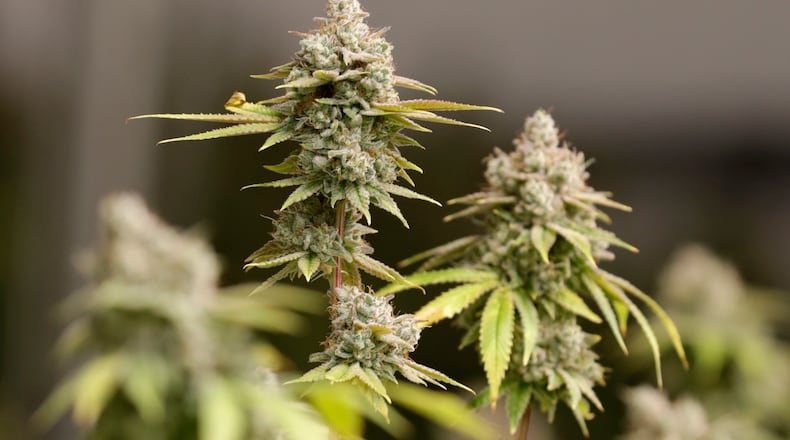Here’s what you should know about the rules of Ohio’s recreational marijuana program.
Opening day rules
The ODCC passed guidelines for dispensaries to follow on their first day of recreational sales, mostly banning outdoor celebrations.
Dispensaries are not allowed to give out free samples and marijuana can’t be consumed at their locations.
Also, no music can be played outside, no food can be sold or given away on the property, no outdoor décor or signage is allowed that wasn’t approved by state officials, and no ribbon cuttings can occur outside.
Dispensaries can play music, pass out non-alcoholic beverages, but up decorations and hold ribbon-cutting ceremonies inside, however.
Product types, limits, ID requirements and payments
Dispensaries in Ohio can sell cannabis flower, edibles, patches, lotions and even infused drinks, but non-medical consumers can only possess, transfer or transport up to 2.5 ounces of cannabis and 15 grams of extract or edibles.
Customers can’t buy more than 10 whole-day units of cannabis across all forms – a whole-day unit varies from up to 110 milligrams of THC for edibles to 2.83 grams for plant material.
Dispensaries are required to see valid state-issued ID cards.
Many dispensaries are cash-only, and customers can expect to pay a 10% tax.
Where to go
Over a dozen area dispensaries were approved to begin selling recreational marijuana Tuesday. We have compiled a map of the locations statewide and a list of the local dispensaries.
Some still can’t partake
Although recreational marijuana has been legal in Ohio for months, many public employers still prohibit their employees from using it during their free time.
This includes local city governments like Dayton, Beavercreek, Centerville, Fairborn, Kettering and Trotwood, as well as public agencies like the public transit.
Local growers
One of the first facilities in the state to be certified to cultivate cannabis for recreational and medical uses is Pure Ohio Wellness in Springfield.
Delta-8 THC
As the state moves forward with legal recreational cannabis, state regulators are calling for a ban of Delta-8 THC, which is a largely unregulated smokeable hemp product that produces a marijuana-like high.
Businesses that sell Delta-8 products, however, are asking for the state to regulate them rather than outright banning them.
About the Author

